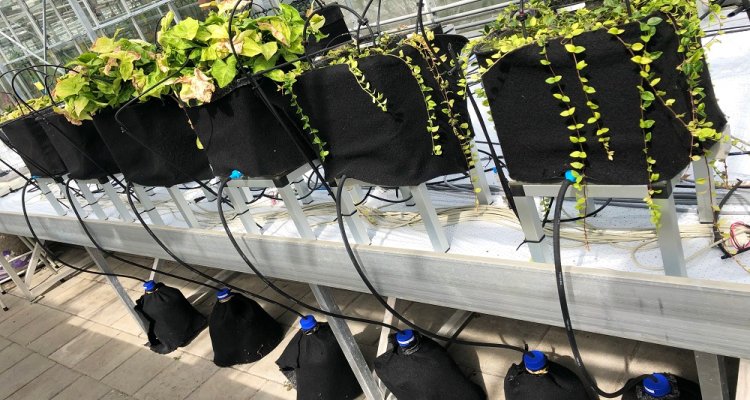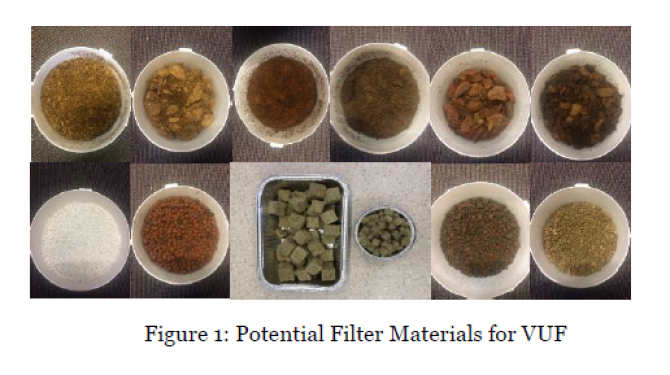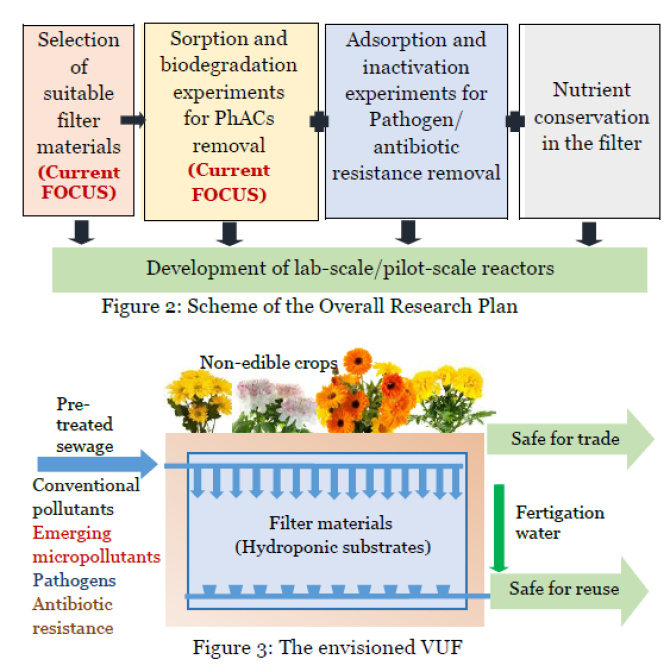
Project
Vital urban filter for safe and productive agricultural use of wastewater
Rapid urbanization results in the generation of large volumes of wastewater, usually not paired with adequate treatment facilities. Together with the overexploitation of freshwater resources, the discharge of untreated wastewater puts a tremendous pressure on freshwater supply, especially in urban environments and downstream watersheds.
Existing traditional treatment technologies may not be efficient enough to remove certain pollutants, such as micropollutants like PhACs (Pharmaceutically Active Compounds), pathogens and antibiotic resistance that all may become a serious threat in the future. Therefore, novel decentralised, more efficient and compact technologies have to be developed and adopted to treat urban wastewater efficiently.
Technological challenge
The envisioned Vital Urban Filter (VUF) is a filter based on the principle of conventional vertical flow constructed wetland (VFCWs) but with a smaller footprint due to the selection of highly efficient filter materials that can intensify biomass growth and thus degradation and sorption processes.

It is challenging to intensify biomass growth in VUF while avoiding clogging. Therefore, we investigate the use of different filter materials to achieve high biomass without much clogging. The filter materials we use need at the same time to support the growth of ornamental plants and enhance the quality of the effluent. It is also vital to ensure that the produced effluent and flowers are safe for use. Therefore, VUF system will be optimized to enhance the removal of pathogens and micropollutants along with the conventional pollutants. Nutrient conservation in VUF is also required to produce effluent suitable for irrigation as fertigation water.
